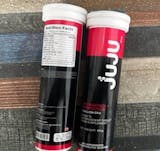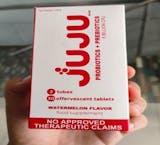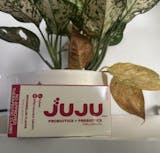Collagen and vitamin C are two vital elements that are crucial for preserving the health of the skin and general well-being. The terms vitamin C and collagen are closely associated with healthy, glowing skin and are essential for the body’s general health.
Strong antioxidant vitamin C is well-known for strengthening the immune system and defending the body from damaging free radicals. Beyond that, though, its importance lies in the fact that it is essential for the manufacture of collagen, the structural protein that gives skin its firmness and suppleness.
Collagen is essential for maintaining healthy skin and general health because it is the building block of our skin, hair, nails, and even connective tissues.
We will examine the relationship between collagen and vitamin C in more detail in this post, as well as how they complement one another to preserve a young appearance and promote general wellness. We will also go over the best ways to get vitamin C, the importance of collagen for healthy skin, and how to incorporate these topics into your daily routine for the best effects.
IN THIS ARTICLE
16. Conclusion
Understanding Vitamin C
When our systems break down the food we ingest, they produce molecules called free radicals. Cigarette smoke, air pollution, and UV light from the sun all pose a threat to human health by exposing people to free radicals in the environment.
Collagen, a protein needed for wound healing, cannot be produced without vitamin C. Vitamin C also aids in the efficient functioning of the immune system, which in turn protects the body from sickness and promotes the absorption of iron from plant-based meals.
Vitamin C’s health effects are now being investigated by scientists. Here are few examples of what this research has shown.
Cancer treatment and prevention
Many types of cancer, including lung, breast, and colon cancer, may be less likely in people who consume lots of vitamin C from fruits and vegetables. Vitamin C supplementation, alone or in combination with other antioxidants, do not appear to reduce the risk of developing cancer.
The effectiveness of vitamin C supplements as a cancer treatment is still up for debate. The effectiveness of vitamin C appears to be dose-dependent. Vitamin C levels in the blood cannot be increased to the same extent by taking the vitamin orally as they can by receiving an intravenous injection.
Very high blood levels of vitamin C have been linked to tumor regression in animal and cell culture experiments. However, more studies are needed to confirm whether or not high-dose intravenous vitamin C is effective in treating cancer in humans.
Vitamin C and other antioxidant supplements may interfere with cancer treatment involving chemotherapy or radiation. Vitamin C and other antioxidant supplements, especially at high doses, should be discussed with an oncologist before being taken by a patient undergoing cancer treatment.
Cardiovascular disease
The prevalence of cardiovascular disease appears to be lower among populations that consume large amounts of fruits and vegetables. Since oxidative damage is a key cause of cardiovascular disease, researchers think the antioxidant content of these foods may be at least partially responsible for this link.
But researchers aren’t clear if vitamin C from diet or pills actually protects against heart disease. The role of vitamin C in preventing the progression of cardiovascular disease in persons who already have it is likewise unclear.
Cataracts with age-related macular degeneration (AMD)
Both age-related macular degeneration and cataracts are major contributors to blindness in the elderly. Vitamin C and other antioxidants have not been shown to reduce the risk of developing AMD, according to the available research. The course of AMD, however, may be slowed by a combination of vitamin C and other nutrients.
Daily supplementation with 500 mg vitamin C, 80 mg zinc, 400 IU vitamin E, 15 mg beta-carotene, and 2 mg copper reduced the risk of advanced AMD in a large trial of adults over 60 with AMD who were at high risk of developing advanced AMD over a period of around 6 years.
Those who took the supplement also experienced less decline in eye sight than those who did not. Patients and those at risk of developing the disease may benefit from discussing the use of nutritional supplements with their physician.
The link between vitamin C intake and the development of cataracts is not well understood. A lower risk of developing cataracts has been linked to higher dietary intakes of vitamin C. However, more study is needed to confirm this correlation and establish whether or not vitamin C supplementation influence cataract risk.
The common cold
Despite vitamin C’s lengthy history as a go-to cold cure, studies show that most people won’t benefit from taking the supplement.
However, habitual users of vitamin C supplements may experience shorter colds and/or less severe symptoms. After the onset of cold symptoms, using vitamin C pills does not seem to assist.
Sources of Vitamin C
Fruits and vegetables are rich in vitamin C. It is recommended to consume these items fresh because heat and boiling in water can degrade their vitamin C content.
Examples of high-quality vitamin C sources include:
- red and green peppers
- oranges and orange juice
- grapefruit
- kiwifruit
- strawberries
- spinach and other green, leafy vegetables
- tomatoes
- potatoes
- green peas
Daily Recommended Intake
The daily recommended intake of Vitamin C, also known as ascorbic acid, varies depending on factors like age, gender, and specific health conditions. However, in general, the recommended daily intake for most adults is around 65 to 90 milligrams per day. For pregnant and breastfeeding women, the recommended intake is slightly higher, typically around 85 to 120 milligrams per day.
Vitamin C is a water-soluble vitamin that plays a vital role in various bodily functions. It is an essential nutrient for the growth, development, and repair of all body tissues. Meeting the daily recommended intake of Vitamin C is crucial for several reasons.
First and foremost, Vitamin C is a powerful antioxidant that helps protect our cells from damage caused by free radicals. It supports the immune system by promoting the production of white blood cells and helps the body fight off infections.
Additionally, it is essential for the synthesis of collagen, a protein that is crucial for the formation of skin, blood vessels, tendons, and ligaments. Without sufficient Vitamin C, we can develop scurvy, a disease characterized by fatigue, swollen gums, and skin problems.
Moreover, Vitamin C also enhances the absorption of non-heme iron from plant-based sources, which is especially important for individuals who follow vegetarian or vegan diets.
It aids in wound healing, contributes to healthy gums, and may reduce the risk of chronic diseases, such as heart disease, by improving blood vessel health.
Vitamin C Deficiency
Vitamin C deficiency due to a diet low in vitamin C is possible even in countries with low rates of food poverty, but severe deficiency (producing scurvy) is extremely rare.
- Not eating enough fresh fruits and vegetables can cause the deficiency.
- People feel tired, weak, and irritable.
- Severe deficiency, called scurvy, causes bruising, gum and dental problems, dry hair and skin, and anemia.
- The diagnosis is based on symptoms and sometimes blood tests.
- The deficit can generally be remedied by increasing one’s intake of vitamin C through food or supplementation.
Connective tissue (which includes tendons, ligaments, and blood vessels) and bone require vitamin C (ascorbic acid) for proper development and maintenance. The health of your blood vessels depends on it as well.
Teeth and gums benefit from vitamin C’s antioxidant properties. It facilitates iron absorption, which is important for the production of red blood cells. Healing from burns and wounds is aided by vitamin C. Citrus fruits, tomatoes, potatoes, broccoli, strawberries, and sweet peppers are all good food choices that are also high in vitamin C.
Antioxidants like vitamins C and E help keep cells healthy by neutralizing harmful free radicals produced during regular cellular metabolism. It may take a lifetime for the effects of some of these reactions to manifest.
Understanding Collagen
Several subgroups of collagen exist based on the kind of structures they produce. Collagen types I through IV are the most frequent forms of collagen found in humans, with type I making up more than 90% of all collagen.
Human bodies contain more collagen than any other protein. This allows for a great deal of categorization. Types I through V collagen are the most common, and they all do somewhat different things.
Collagen is a crucial factor in maintaining the skin’s firmness and elasticity since it serves as the skin’s structural matrix or mattress. Collagen type I predominates in skin, making up roughly 80%-90% of the protein. It is made by fibroblasts, a type of mesenchymal cell that can be found mostly in the dermis.
Elastin, which is produced by fibroblasts, allows skin to stretch by allowing for long-range deformability and then recoiling so that tissues can return to their original conformation. Keeping the skin supple and resilient relies on this function.
Glycosaminoglycans (GAGs) including hyaluronates and dermatan sulphate (the most prevalent GAG in skin) are also produced as a byproduct of fibroblast metabolic action. Their various uses, including the preservation of the skin’s necessary moisture content, can be attributed to their unusual mix of high viscosity, high hygroscopicity, and low compressibility.
Types of Collagen
Collagen comes in at least 28 different varieties. The assembly of the molecules, the addition of cell components, and the tissue applications all play a role in distinguishing one type of collagen from another. Every single collagen fibril consists of three helices.
Five major forms of collagen and their functions are as follows:
- Type I. Ninety percent of the collagen in your body is of this type. Skin, bones, tendons, and ligaments all utilize Type I collagen for structural support.
- Type II. Elastic cartilage, which helps support joints, contains this type.
- Type III. Muscles, arteries, and internal organs all contain this kind.
- Type IV. The skin layers are a common habitat for this kind.
- Type V. This type is located in the cornea of your eyes, some layers surrounding skin, hair and tissue of the placenta.
How the Body Produces Collagen
In scientific terms, collagen is a polypeptide. Amino acids form a chain, and those bonds hold the peptide together. Amino acids are chemicals employed at the cellular level all across the body. They are either made by the body itself or obtained through food.
Fibroblasts are one type of specialized cell that contributes to the production of collagen. These can be found in the connective tissues, which serve crucial functions throughout our bodies. Collagen is produced when fibroblasts combine amino acids into polypeptides.
Factors Affecting Collagen Levels
Collagen levels in the body can be influenced by various lifestyle and environmental factors.
One key factor is diet; a diet high in sugar and processed foods can lead to the formation of advanced glycation end products (AGEs), which can damage collagen fibers and reduce their effectiveness.
Smoking is another lifestyle factor that can deplete collagen levels, as it restricts blood flow to the skin and introduces harmful toxins into the body, accelerating the breakdown of collagen.
Additionally, excessive sun exposure can lead to the production of enzymes that break down collagen, causing premature aging and reducing skin elasticity. Environmental factors such as pollution and exposure to UV radiation can also generate free radicals that damage collagen and contribute to its depletion.
Therefore, maintaining a healthy lifestyle, protecting your skin from environmental stressors, and consuming a balanced diet rich in nutrients that support collagen production can play a crucial role in preserving and enhancing collagen levels in the body.
Synergy of Vitamin C and Collagen
Vitamin C is widely known to strengthen the immune system because of its role as a potent antioxidant.
Since it was determined that a lack of vitamin C caused scurvy, it has been generally understood that vitamin C benefits the skin. This understanding is used to justify the use of vitamin C in beauty products.
Our skin, notably our keratinocytes, has significant quantities of vitamin C, which aid in collagen creation, wound healing, minimizing scar formation & assisting in antioxidant protection against UV damage, and every one which ameliorates indications of ageing skin.
Due to the high vitamin C content, a diet high in fruits and vegetables is essential for supporting good skin and collagen formation.
Everyone’s diet should include vitamin C supplements because of the wide variety of positive effects they provide. Vitamin C has a recommended daily allowance (RDA) of 75–200 milligrams (mg), although some experts say that even this low amount is insufficient to provide health benefits.
Vitamin C as a Collagen Booster
Collagen production requires a number of nutrients, including the amino acids proline and glycine, the minerals copper and zinc, and most importantly vitamin C.
Collagen formation is aided by vitamin C because it stimulates the development of fibroblasts. Within the skin are cells called fibroblasts, which secrete collagen to help keep our skin and joints flexible and healthy.
Collagen is made by cells called fibroblasts, and vitamin C is a crucial component in collagen formation because it ensures the health and proliferation of fibroblasts. To rephrase, collagen synthesis relies on fibroblasts, and fibroblasts would not exist in the absence of vitamin C.
In addition, vitamin C’s antioxidant properties shield collagen from free radicals’ destructive influence. Unstable oxygen molecules, known as free radicals, roam the body in search of stable electrons.
Collagen degradation and cellular and DNA damage are additional possible outcomes. Antioxidants like vitamin C can fight off the damage caused by free radicals. Additionally, they aid in the repair of damaged DNA sequences that “code for” collagen formation.
As a water-soluble vitamin, vitamin C cannot be stored by the human body. As a result, it’s essential that we have it in our food on a daily basis; the body excretes any excess through the urinary system. Vitamin C is essential for collagen formation, thus eating foods like citrus fruits and juices, berries, peppers, broccoli, and potatoes is helpful.
Antioxidant Protection
Antioxidants are compounds that have the potential to shield cells from free radicals, which have been linked to cardiovascular disease, cancer, and other illnesses. When you metabolize food or are exposed to harmful substances like tobacco smoke or radiation, your body creates free radicals.
Free radical damage to cells can be mitigated by antioxidants such vitamins C and E and carotenoids. Flavonoids, tannins, phenols, and lignans are some of the other antioxidants found in nature. The finest sources can be found in plant-based diets. Fruits, vegetables, entire grains, nuts, seeds, spices, herbs, and even chocolate are all examples.
Antioxidant-rich foods, such as fruits, vegetables, and whole grains, also tend to be high-fiber, low-saturated-fat, and nutrient-rich. So appreciate the variety.
Combating Signs of Aging
The sun is a major contributor to skin ageing that occurs before its time. There are other ways in which we can hasten the ageing of our skin. Dermatologists typically give their patients the following advice to assist them delay the onset of skin ageing.
- Always remember to use sunscreen. It is important to protect yourself from the sun whether you are at the beach or out and about. Seek shade, wear lightweight long-sleeved shirts and slacks, a wide-brimmed hat, and UV-protective sunglasses, and use a broad-spectrum, SPF 30 (or higher), water-resistant sunscreen to keep your skin safe from the sun. All exposed skin should be protected by applying sunscreen daily. Wearing garments labelled with a UPF (ultraviolet protection factor) label will provide more effective protection.
- Instead of getting a tan, try using self-tanner. Getting a tan speeds up the ageing process of your skin. This is true whether you tan outdoors, in a tanning bed, or using some other type of indoor tanning device. All of these sources of radiation contribute to premature skin ageing by producing UV rays.
- Stop smoking immediately. The ageing process of the skin is substantially accelerated by smoking. It leads to skin that is dull and wrinkled.
- Keep your expressions varied and interesting. The underlying muscles tighten whenever an expression is made. Over time, if you permanently contract the same muscles, you will see these lines. Squinting causes lines, but sunglasses can help prevent it.
- Keep your diet balanced and healthy. Several studies have found that a diet rich in fresh fruits and vegetables may protect skin against the kind of damage that causes it to age faster than it should. Studies have shown that a high-sugar or refined-carbohydrate diet can hasten the ageing process.
- Cut back on the booze. Alcohol causes skin irritation. It causes the skin to dry out and get damaged over time. Due to this, we may end up seeming more older than we really are.
- Try to work out five or more days a week. Some research has found that regular moderate exercise is beneficial for the cardiovascular system and the immune system. As a result, this may make the skin look younger.
- Be gentle when you wash your face. Scrubbing your skin to remove dirt and oil might cause irritation. When you irritate your skin, it ages faster. Washing gently helps get rid of dirt, grime, and makeup without irritating the skin.
- Face washing twice day and after heavy perspiration is recommended. It’s important to wash your skin as quickly as possible after you perspire, especially if you’ve been wearing a headgear or helmet that traps moisture.
- Moisturise your face daily. By preventing moisture loss, moisturiser prolongs the look of youthful skin.
- Put down the stinging and burning skin care products. A sign of skin irritation is a burning or stinging sensation. Ageing effects of irritation on the skin are well documented.
CHOOSING QUALITY SUPPLEMENTS
Trying to find the best supplement to meet your needs might be difficult because there are so many available. Why does it matter if the brand, price, or dosage? If you want to know what to look for in a high-quality supplement, read on.
Quality and efficiency
There are many different kinds of vitamins and minerals, and not all supplement manufacturers utilise the same ones. You may get magnesium in many different forms, including magnesium chloride, magnesium sulphate, magnesium taurate, and magnesium citrate.
Epsom salts (magnesium sulphate) can be helpful for constipation, but they have a laxative effect and should be used with caution. Despite its prevalence, studies have revealed that this type of magnesium is easily eliminated by the kidneys and thus little absorbed.
Magnesium chloride is more readily absorbed and metabolized by the body, therefore its effects from a magnesium bath stay longer than those from magnesium sulphate.
Magnesium chloride, which is used in BetterYou’s Magnesium Oil sprays and flakes, is highly recommended for fast acting use because to its outstanding rate of absorption. Because it is absorbed transdermally, it spares the digestive tract while still providing a speedy and efficient dose.
Transdermal application of magnesium chloride has been shown to increase magnesium levels in the body in a short amount of time and to have a beneficial effect in preventing calcium buildup in body tissues, allowing the calcium to be properly utilised, according to a study by Watkins & Josling.
The most common type of magnesium marketed in drugstores, magnesium oxide, has a very low absorption rate in comparison to the other forms.
The sourcing of supplement ingredients is another element to be cautious of when buying supplements. Do you know if the environment they grew up in was safe? Are they obtained in a moral manner? BetterYou only utilize the purest and most soluble natural magnesium source.
It is extracted in Northern Europe from the Zechstein Sea, an ancient seabed that is now more than a mile underground. The depth and remote position of this ancient seabed have resulted in a pristine environment, free of any traces of manmade pollution for the past 250 million years.
Tried and tested
When deciding which brands of supplements to carry in my practise, I constantly enquire as to the level of scientific investigation and the nature of the clinical trials employed by the manufacturer.
I also enquire as to whether or not the manufacturer does batch testing to ensure that the ingredients listed on the label are indeed there. BetterYou takes quality and assurance very seriously, thus they adhere strictly to these standards.
BetterYou doesn’t sell a product if it fails any of the quality assurance tests performed on it before it goes to market. Sadly, not many brands are as diligent about quality control as BetterYou.
Dosage and formulas
This is a crucial aspect while making dietary supplement choices. It may be preferable to choose a supplement with a smaller amount that can be taken multiple times a day to increase the likelihood of absorption if this is the case with the supplement in question.
The convenience of use is also an important consideration. For those who have trouble swallowing pills, such as those with digestive problems or insufficiency, alternatives such as oral sprays, liquids, and topical vitamin approaches can be more convenient.
Supplements like those found in BetterYou’s transdermal magnesium and oral vitamin spray lines are great because of how easily they can be taken.
Genetically-modified organisms (GMOs)
Avoid using any supplements that have been genetically engineered. Genetically modified organisms have negative effects on both human health and the natural and social environments. Pesticides and herbicides like glyphosate, which has been linked to cancer and gastrointestinal problems, may be necessary.
BetterYou uses only the finest ingredients in their supplements, and they follow stringent guidelines to make sure there are no genetically modified components.
Colourants, additives, and artificial flavours
You should try to find items that are simple in their ingredients and don’t contain any sugar, artificial flavours, or dyes.
Watch out for allergies including gluten, dairy, and soy as they are sometimes incorporated into supplements.
Not tested on animals
Animal testing is often overlooked, although it plays an important role in the supplement testing process. Choose brands that conduct human testing instead of animal testing.
Cost
Supplements should be reasonably priced, however this should not be confused with quality. In order to keep costs down, some brands cut corners by not using ingredients that have been well studied. Always conduct your study and take all of the above into mind.
If you keep these things in mind, picking for a supplement won’t be as difficult as you might think. You can get the most out of your supplement and rest easy knowing that you’re helping your body out by purchasing from a firm that has your best interests at heart.
Safety and Precautions
It is crucial to be informed of the potential side effects & precautions when using collagen supplements with Vitamin C to ensure your safety and get the most out of them. Here are some essential details to keep in mind:
Side Effects
- Gastrointestinal Distress: Extremely high levels of vitamin C have been linked to gastrointestinal side effects such nausea, vomiting, and diarrhea. To avoid this, it may be prudent to begin treatment with a lesser dosage and gradually increase it as needed.
- Allergic Reactions: There are those who are allergic to both collagen and vitamin C. If you suffer symptoms like itching, swelling, especially difficulty breathing, seek medical attention immediately.
Interactions
- Medication Interactions: Collagen and Vitamin C supplements shouldn’t be taken without first discussing their use with a doctor. The effectiveness or safety of several medications may be compromised by the use of these dietary supplements.
- Iron Absorption: Iron from plant sources (non-heme iron) is better absorbed with vitamin C in the body. Vitamin C supplements should be used with caution if you have a medical condition that necessitates limiting your iron consumption.
Dosage
- Supplement labels should be followed for proper dosing. Kidney stones and other health problems have been linked to taking in excessive amounts of vitamin C.
- Collagen dosage is product- and application-specific; seek professional advice for optimal results.
Quality and Purity
- Always go with a trusted brand when purchasing supplements. To ensure the safety and efficacy of the products you purchase, look for independent testing and certifications.
Health Conditions
- Taking Vitamin C supplements, especially in large quantities, might have an effect on renal function; if you have kidney difficulties or a history of kidney stones, talk to your doctor before starting.
Pregnancy and Breastfeeding
- It is important to check with your doctor before taking any dietary supplements, including collagen and Vitamin C, while pregnant or breastfeeding.
Maintain a Balanced Diet
- Although supplements are useful, they should only be used in addition to a healthy, balanced diet. To guarantee you’re getting enough nutrients, center your diet around a wide range of healthy foods.
Monitor Your Body’s Response
- Mind your body’s reaction to the supplements. If you suffer any severe side effects while using this product, you should stop immediately and consult a doctor.
Stay Hydrated
- Collagen and Vitamin C supplements may boost your body’s desire for water. Maintain a healthy water intake to aid in their operation.
Supplementing with collagen and vitamin C may boost skin and joint health, among other benefits. But it’s important to keep in mind things like interactions, adverse effects, and personal preferences.
If you have any preexisting health concerns or are already taking any drugs, you should talk to your doctor or a certified dietitian before adding any of these supplements to your regular regimen. This will assist assure your safety and optimize the effectiveness of these supplements.
Frequently Asked Questions
What is Vitamin C, and how does it relate to collagen?
Vitamin C is a water-soluble vitamin that plays a crucial role in collagen synthesis. Collagen is a protein responsible for maintaining the structure and elasticity of our skin, tendons, ligaments, and blood vessels. Vitamin C is essential for the production of collagen in the body.
How does Vitamin C benefit the skin?
Vitamin C helps promote healthier and younger-looking skin by aiding in collagen production, reducing the appearance of fine lines and wrinkles, and protecting the skin from damage caused by UV radiation and free radicals.
What are the sources of Vitamin C?
Vitamin C can be obtained from a variety of sources, including citrus fruits (oranges, lemons), strawberries, kiwi, bell peppers, broccoli, and supplements.
Can you get enough Vitamin C from your diet alone?
A balanced diet rich in fruits and vegetables can provide sufficient Vitamin C for most people. However, some individuals may require supplements to meet their daily needs, particularly if they have dietary restrictions or health conditions.
How does collagen benefit the body?
Collagen is crucial for maintaining the strength and flexibility of various tissues in the body, such as skin, cartilage, and bones. It can improve skin elasticity, joint health, and may reduce the risk of bone and joint disorders.
Conclusion
Vitamin C and collagen are crucial elements for maintaining healthy skin. Vitamin C acts as a powerful antioxidant, protecting the skin from damage caused by free radicals and promoting collagen production.
Collagen, on the other hand, is a structural protein that provides elasticity and firmness to the skin. Together, vitamin C and collagen help reduce the signs of aging, such as wrinkles and fine lines.
To support skin health, it’s essential to incorporate foods rich in vitamin C and consider collagen supplements if necessary. In conclusion, the combination of vitamin C and collagen plays a significant role in achieving and maintaining youthful and vibrant skin.










